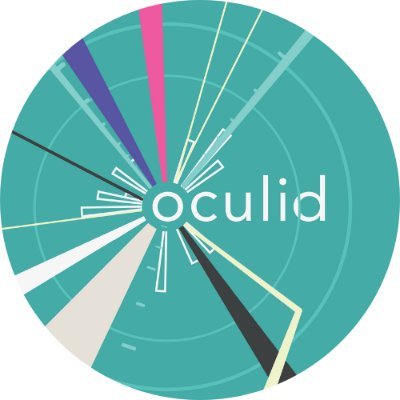
Female founders are breaking the glass ceiling in Germany
Germany has proven to be a fertile ground for the foundation and development of startups, but women are still getting a small piece of the pie.
In 2021, German startups have raised a record €8.1bn from VC funds, more than the €6bn in all of 2020, proving to be one of Europe’s powerhouses of technology and innovation. The country had nineteen new unicorns in the last year (privately held startup company valued at over $1bn). However, the list is dominated by male founders and CEOs.
The discrepancy is not exclusive to Germany, as 90% of the 50 world’s largest and most successful tech-focused organisations CEOs are male, according to a Fire Tech’s study. None of the world’s top 10 largest tech firms have a woman in charge.
Although still underrepresented in the tech scene, women are slowly but surely conquering their seat at the table. According to the Female Founders Monitor report released in 2020, around 16% of startup founders in Germany are women, and the number tends to be lower in the tech sector and SaaS.
Pioneers in the German context
Dr Antje Venjakob is one of the pioneers paving the way for female founders in German tech. During her PhD, she envisioned a technology that could make eye tracking easy, accessible and mobile, such that researchers can conduct studies remotely without the need of an external hardware.
She founded Oculid with two colleagues from Technische Universität Berlin, Stefan Ruff and Klaas Filler, to create the work environment where they wanted to work in.
“To some extent, doing a PhD and founding a startup is similar in the sense that you are yourself responsible and accountable for every decision you take and everything you create. This can be great and challenging at the same time” Venjakob explained.
Academia was the environment that also drove the founder of IN-VISIBLE Rea Eldem to entrepreneurship. Eldem noticed the gap that exists between the theoretical studies and the corporate world: “During my academic training at the Centre for Interdisciplinary Women’s and Gender Studies at Technische Universität Berlin and at Cambridge University, I realised how detached everyday conversations are from what’s going on in academia”, she said.
Eldem was motivated to reach out to people who were sceptical about gender inequality and get them involved in the conversation in order to make more significant changes in the labour market in Germany. “I wanted to find a way to reach out to these people as I realized that the different levels of knowledge and privilege causes increasing conflicts”, she said.
Building a business from scratch was not an easy task for either of them. Both companies have their roots in academia, a place that has a key role in bringing more talented women into entrepreneurship, but they chose different paths when it comes to funding. Oculid has so far received one seed funding round led by IBB Ventures, including the business angel Alfred Möckel, who invests in women-led businesses and affirms that diverse teams have a better chance to succeed. “Investors should be very interested in investing in startups with women founders”, he recommended, as research has shown that women-run businesses deliver higher revenues.
For Eldem, finding investors for her startup was out of question. “I chose against external investors because this topic felt extremely personal and I wanted to do it my way or not at all. I thus financed myself through lecturer positions and built up IN-VISIBLE for three years by myself before we generated enough revenue to hire”, she explained.
The company now has six employees, all women and non-binary.
Anatomy of a founder
According to the report Female Founders Monitor 2020, most founders – both male and female – fund themselves through personal savings, like Eldem. However, when it comes to investments from business angels and venture capital, the path that Oculid chose, men dominate as 43.3% of male founders are funded through those means while 9.3% of women get this type of investment.
The amount of capital raised and type of funding can be explained by the industry value of startups led by women, but also by the process in the pitching stage which might be based on gender stereotypes.
Founding a startup takes courage, ambition, and the will to take risks. These are characteristics socially and historically expected from men rather than women, and this stereotype might decrease the confidence that investors have in female startup founders.
“The image of a founder is inherently male, making it hard for women to find role models, networks as well as mentors”, explained Eldem, whose company focuses on educating people about gender bias in business.
Venjakob also believes that some traits more commonly seen in women are undervalued in the startup ecosystem: “Being a cautious, self-critical mind is a trait that is not so highly valued in the startup scene in general and maybe that is a trait that might more often be attributed to or be present in women and ‘punished’ when it comes to acquiring funding. My observation, however, it that it can also happen to men that do not present themselves as the stereotypical startup founders”, she said.
In the tech field, though, the statistics prove the effectiveness of diversity in leadership: a study from the Peterson Institute for International Economics has shown that companies where 30% of leaders are women have a 15% increase in profitability compared with similar companies with no women in leadership roles. It might be time for invertors to rethink the concept of a successful startup founder.
A brighter future
Although the number of female founders is increasing in the past few yearsthe progress is still shy. According to Female Founders Monitor, between 2019 and 2020 there was less than one percent increase in the number of women founding startups, which indicates that change has to be made in the startup ecosystem focused on gender equity.
Diversity is not only a word that is in the values of Oculid, according to Venjakob, but actions that are taken every day to ensure that it is at the core of the business to drive inclusion, innovation and success: “We see in our company the importance of diversity for the work environment, not only in gender but in background, nationality, culture and so on. Having people with different perspectives working on the same mission is great for finding creative solutions and having a more fruitful enterprise”, Oculid’s founder explained.
Eldem agreed, suggesting that the startup scene should have a clear plan and goals to achieve more female representation.
“We need more ‘nos’ to only-male panels, only-male VC juries, double-standards, and more critical perspectives on female founders. We need a clear ‘yes’ to enhanced founding structures for diverse teams (gender, ethnicity, cultural background, ability etc.) and attention to projects run by FLINTs (females, lesbians, inter, non-binary, trans)”, she said.
Both are examples of the importance of academia in encouraging and supporting women in creating and investing in their own businesses. Initiatives such as Women Angels Mission ’25, from Business Angels Network Germany (BAND), also promote the increase of women in the startup ecosystem both as founders and as investors.
For Venjakob, having role models to show the many possible paths for female entrepreneurs is also essential to increase diversity in the startup scene.
Those role models have to be realistic about the struggles of creating a business, though: “We still have very big hurdles and systemic discrimination patterns. It makes women feel like it’s their fault and like they are not enough. This is horrible and clearly wrong. This is clear in academia – but somehow in the discourses around women empowerment is often translated into a ‘try harder’ narrative. I see this in my consulting projects every single day and it is unfair. So, I would say to a woman who wants to become an entrepreneur in Germany that she is going to face many challenges. Should she still do it? Yes, I think so”, explained IN-VISBLE’s founder.


